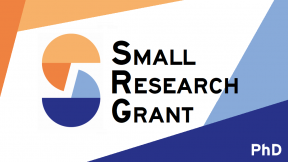Labour coercion was a pillar of colonial expansion of European powers. Slavery – its most violent form - was widely used in the Caribbean, where non-whites made up to 90% of the total population in the mid-19th century (Engerman and Higman 2003). Documenting the impact of forced labour on socioeconomic outcomes is crucial to understand the long-term development of formerly colonized territories. It is also highly policy relevant, as it contributed to shape systematic issues such as racism, economic inequality, and social exclusion. Informing policy decisions on how to address them requires an understanding of the transmission channels of persistence. Despite growing evidence on the role of coercive institutions in shaping long run geographic development (Acemoglu, García-Jimeno, and Robinson 2012; Acemoglu, Johnson, and Robinson 2001; Dell 2010; Dell and Olken 2021; Lowes and Montero 2021; Nunn 2008; Nunn and Wantchekon 2011), little is known about its intergenerational impact at the family level. We therefore know little about the role of family-specific endowments such as genetics and norms in explaining persistence - as opposed to local characteristics such as infrastructure.
This project contributes to the burgeoning literature on the intergenerational impact of slavery using family level socioeconomic data over several generations in the Caribbean context – the French sugar islands of Guadeloupe and Martinique.
Beigelman undertakes a massive digitation effort of handwritten administrative data on enslaved individuals and their descendants. This newly digitized data will allow for investigating the impact of labour coercion at the intensive margin on more than three generations for a wide array of development outcomes: health (child mortality, life expectancy); social mobility (intermarriages, occupational mobility); crime; labour market participation; migration.
During the colonial era, nearly all European powers authorized violent labour coercion in their African colonies to face the shortage of labour to extract natural resources. This was not abolished until very recently in Angola and Mozambique, in 1961. Pre-colonial slavery was also widespread in Sub-Saharan African countries, with up to 50% of the population being enslaved at the end of the 19th century in many parts of the West (Lovejoy 2000). In Sierra Leone, slavery was abolished by the British colonial state only in 1928. The granularity and richness of the data collected for this project will allow to identify what outcomes (infant health, crime, etc.) and subgroups (young children, older adults, women, etc.) might be particularly sensitive to past labour coercion and in what way, allowing policy makers to define clear targets of action. Discussion on the relative role of families and institutions will also provide guidance on the most efficient levels of action.



















































